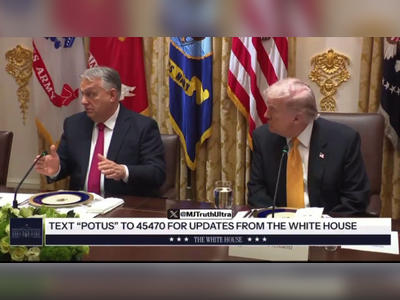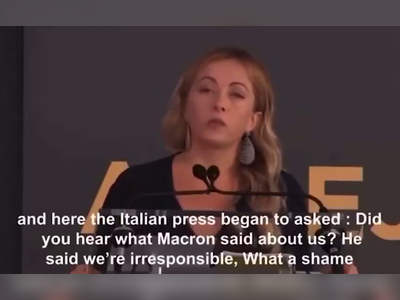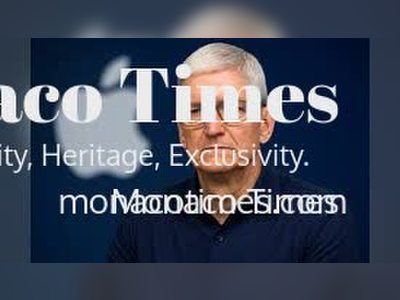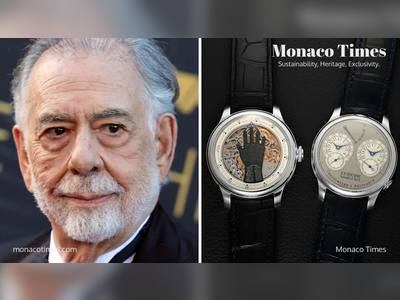
Elon Musk Critiques Donald Trump's Budget Policy Amidst Legislative Proposals
Musk expresses disappointment over proposed spending bill, highlighting potential budget deficit increase.
Elon Musk, the billionaire CEO of Tesla and SpaceX, publicly criticized President Donald Trump for the first time on Wednesday, expressing disappointment over a proposed massive spending bill that he claims would exacerbate the federal budget deficit.
In an interview with CBS News, Musk remarked, "I've been disappointed to see this massive spending bill - frankly - that increases the budget deficit," referring to the substantial economic legislation put forth by the Republican president.
This proposed legislation, which has been described by Trump as a 'great and beautiful' bill, is currently under review in Congress.
It aims to fulfill key campaign promises, such as the extension of significant tax credits established during Trump's previous term.
Non-partisan assessments suggest that the bill, if enacted in its current form, could lead to an increase in the federal deficit by approximately $3.8 trillion over the next decade.
In a separate comment to the Washington Post, Musk expressed concerns regarding his role at the head of the newly established government efficiency commission, known as the Doge.
He stated, "We're on track to become the scapegoat for everything." Musk indicated that his commission has faced undue blame whenever issues arise, despite having no direct involvement.
The White House responded to Musk's remarks indirectly, maintaining that the proposed spending bill and the austerity mission of the Doge are separate initiatives.
Stephen Miller, a senior advisor to Trump, commented on social media platform X that the 'great and beautiful' bill is not a budgetary text, suggesting that Musk’s proposed budget cuts would need to be addressed through a different piece of legislation.
Miller also asserted, against the perspective of various experts, that Trump's initiatives would ultimately reduce the deficit.
Musk expressed skepticism about the feasibility of a bill being both 'great' and 'beautiful,' elaborating that the reality of federal bureaucracy had proved more challenging than he anticipated.
The entrepreneur, who previously supported Trump's campaign financially, has been a prominent figure during Trump's inaugural events and has often been seen alongside the president in various settings.
From the beginning, Musk's role was designed to be temporary, with his designation as an 'employee special of the government' set for 130 days.
Reports have indicated ongoing tensions between Musk and various members of Trump’s cabinet.
In April, Musk announced his intention to step back from government duties to focus more on his businesses, particularly Tesla.
Following a brief outage on the X platform he owns, Musk tweeted about returning to a rigorous work schedule.
Earlier in May, he acknowledged that the Doge had not met its initial goals, despite bold announcements—including the firing of thousands of employees and the proposed downsizing of several federal agencies.
Musk stated that he would continue his work with the Doge but would concentrate on improving the information systems of the administration rather than on staff reductions.
His involvement in federal affairs has raised questions regarding potential conflicts of interest, particularly due to substantial contracts between the administration and his businesses, as well as possible regulations affecting his industry sectors.
In an interview with CBS News, Musk remarked, "I've been disappointed to see this massive spending bill - frankly - that increases the budget deficit," referring to the substantial economic legislation put forth by the Republican president.
This proposed legislation, which has been described by Trump as a 'great and beautiful' bill, is currently under review in Congress.
It aims to fulfill key campaign promises, such as the extension of significant tax credits established during Trump's previous term.
Non-partisan assessments suggest that the bill, if enacted in its current form, could lead to an increase in the federal deficit by approximately $3.8 trillion over the next decade.
In a separate comment to the Washington Post, Musk expressed concerns regarding his role at the head of the newly established government efficiency commission, known as the Doge.
He stated, "We're on track to become the scapegoat for everything." Musk indicated that his commission has faced undue blame whenever issues arise, despite having no direct involvement.
The White House responded to Musk's remarks indirectly, maintaining that the proposed spending bill and the austerity mission of the Doge are separate initiatives.
Stephen Miller, a senior advisor to Trump, commented on social media platform X that the 'great and beautiful' bill is not a budgetary text, suggesting that Musk’s proposed budget cuts would need to be addressed through a different piece of legislation.
Miller also asserted, against the perspective of various experts, that Trump's initiatives would ultimately reduce the deficit.
Musk expressed skepticism about the feasibility of a bill being both 'great' and 'beautiful,' elaborating that the reality of federal bureaucracy had proved more challenging than he anticipated.
The entrepreneur, who previously supported Trump's campaign financially, has been a prominent figure during Trump's inaugural events and has often been seen alongside the president in various settings.
From the beginning, Musk's role was designed to be temporary, with his designation as an 'employee special of the government' set for 130 days.
Reports have indicated ongoing tensions between Musk and various members of Trump’s cabinet.
In April, Musk announced his intention to step back from government duties to focus more on his businesses, particularly Tesla.
Following a brief outage on the X platform he owns, Musk tweeted about returning to a rigorous work schedule.
Earlier in May, he acknowledged that the Doge had not met its initial goals, despite bold announcements—including the firing of thousands of employees and the proposed downsizing of several federal agencies.
Musk stated that he would continue his work with the Doge but would concentrate on improving the information systems of the administration rather than on staff reductions.
His involvement in federal affairs has raised questions regarding potential conflicts of interest, particularly due to substantial contracts between the administration and his businesses, as well as possible regulations affecting his industry sectors.









